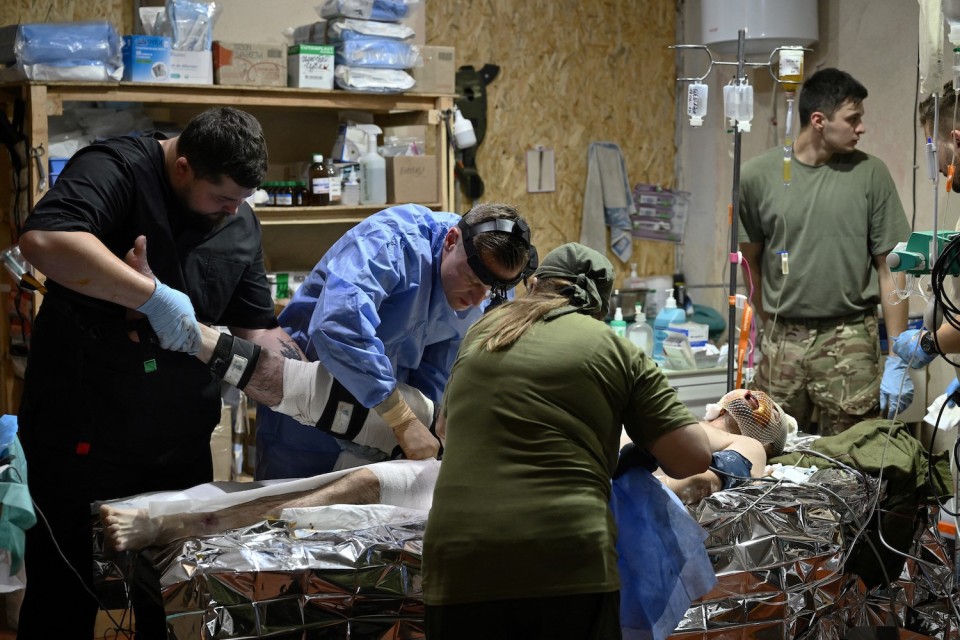
By Maryke VERMAAK
Ukraine, June 15, 2024 (AFP) – When Vitaliy signed up to join the Ukrainian army as a surgeon, he made a promise not to burn himself out, fearing he could be needed for a lengthy and bloody war.
More than two years after Russia invaded and with the fighting showing no sign of subsiding, that promise is being put to the test.
Vitaliy serves at a medical post in the Pokrovsk area of the Donetsk region, where Kyiv says the most intense Russian attacks across the entire front line are taking place.
His job is to stabilise wounded soldiers so they stay alive long enough to make it to a proper hospital.
The flow of the wounded is never-ending and the medics — like Kyiv’s outgunned troops — never get a break.
“Not a day goes by where they (the Russians) do not press and advance … the enemy is attacking and advancing, pressing constantly,” said Vitaliy.
“The guys are also sleep deprived, tired, exhausted,” he added.
A call came in over the radio that a wounded soldier was on the way.
Vitaly quickly put on his blue surgical gown and headlamp.
Within 15 minutes the soldier, moaning from pain, arrived in an armoured vehicle and was carried into the facility on a stretcher. His vehicle had been hit in a drone attack.
“They are in such bad shape and miserable when they get here that it breaks my heart,” Vitaliy said after treating the soldier. “You feel sorry for them.”
– ‘Powder keg’ –
One of the soldiers hit in the drone attack died.
The man Vitaliy treated survived, but nothing could be done to save his hand, which was nearly completely torn off.
The medical post is far from a safe haven, though.
Stabilisation points are frequent targets for Russian strikes.
“It’s like you are sitting on a powder keg,” Vitaliy said.
“You are… waiting for something to hit you, because it is not far from the front line.”
Vitaliy sighed as he recalled the danger. All he wanted to do, he added, was “hold my daughter in my arms”.
Some frontline medics said their mental health had deteriorated so much that they would struggle to go back to a normal life.
Asked how he coped, Andriy, a member of the evacuation team who had just brought in another wounded soldier, said: “I take anti-depressants.”
He already suffered from post-traumatic stress disorder (PTSD), he said.
The “constant blood and constant death” has changed him, the 46-year-old said, explaining that he struggled to fit into civilian life.
“I can’t even fall asleep when it’s quiet anymore.”
Despite the toll, Andriy remains committed to the work.
The best part? Seeing “the eyes of the wounded as we take them out and bring them in alive.
“Without good medicine there will be very big losses,” he said.
But he knew the price he was paying was enormous.
“We will not leave this war, either dead or alive.”








